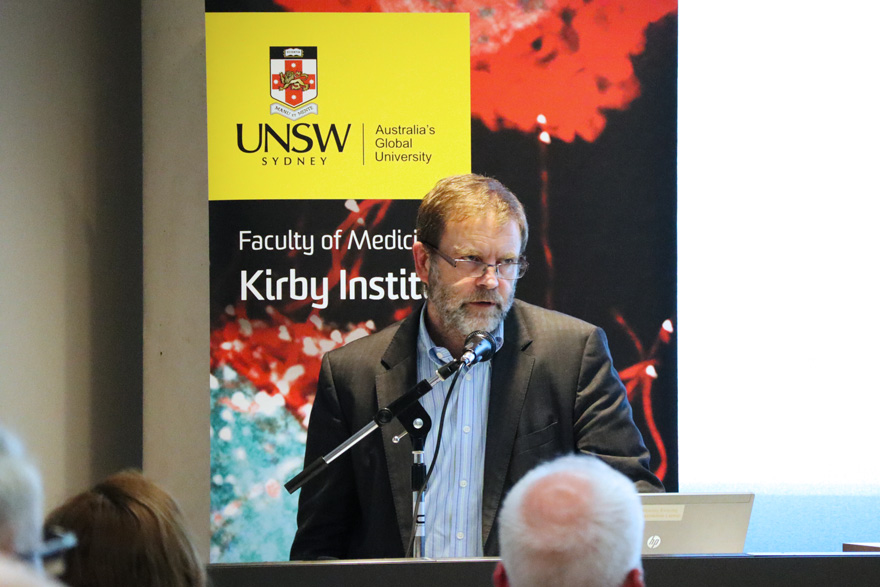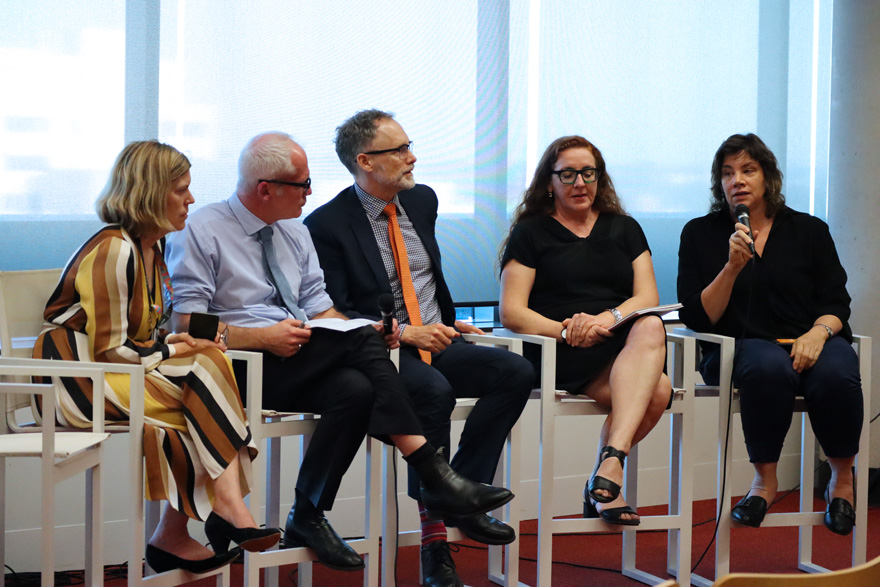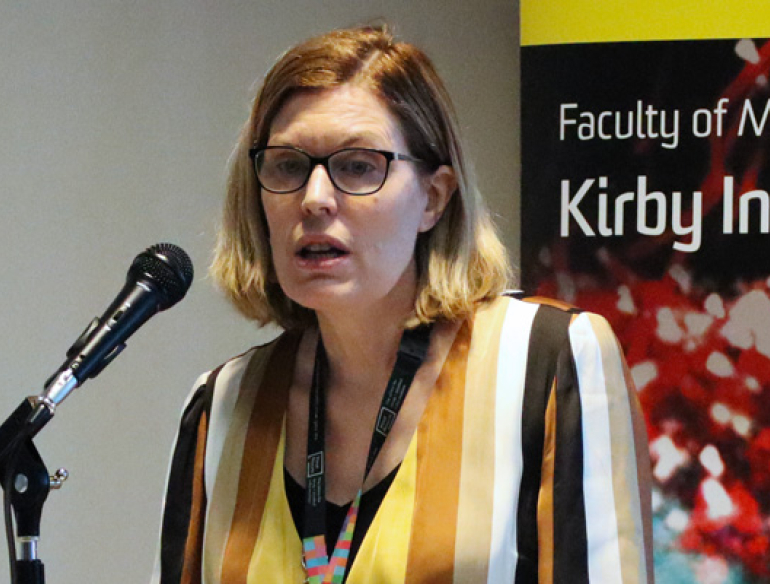The Kirby Institute was delighted to host Dr Kerry Chant, Chief Health Officer of NSW, for the 8th Annual Brett Tindall Memorial Lecture on Wednesday night.
The lecture is given annually in memory of the late Dr Brett Tindall, who was an HIV researcher and worked at the Kirby Institute in its early days (then known as the National Centre for HIV Epidemiology and Clinical Research, or NCHECR). He died of AIDS in 1994.
In one of his first official engagements as Dean of UNSW Medicine, Scientia Professor Vlado Perkovic welcomed guests to UNSW and the Kirby Institute, acknowledging the occasion by saying that “an Institute like the Kirby is the sum of its people.” Professor Anthony Kelleher then paid tribute to Brett, sharing some of his achievements as an HIV researcher, and a collaborator. “Brett was essential in developing the Kirby Institute in the early days. His work with community set the Kirby Institute on the path it is on today, where community partnerships are paramount,” he said.
 Professor Anthony Kelleher
Professor Anthony Kelleher
Dr Chant’s lecture, entitled ‘Applying evidence to the hepatitis C and HIV response’, delved into some of the public health initiatives and trials that have been implemented off the back of, and in some cases built upon, data and the work of researchers. “Consultation with policy makers and other stakeholders to identify system priorities and policy needs is imperative to translating research findings to practice," she said.
Dr Chant concluded her lecture sharing her perspective on some of the principles and approaches to ensuring researchers and policy makers effectively work together to achieve better health outcomes into the future. Among these, she highlighted the importance of partnerships, saying that they “facilitate the co-design of research, where researchers and policy makers are meaningfully involved in all stages of research priority setting.”
The lecture was followed by a panel discussion with research and community experts working in HIV and hepatitis C. The Kirby Institute’s Professor Andrew Grulich and Mr Nicolas Parkhill, CEO of ACON, spoke about some of the successes in effective community engagement in the HIV space, particularly through initiatives such as EPIC-NSW. Scientia Professor Carla Treloar, Director of Centre for Social Research in Health at UNSW, and Dr Mary Ellen Harrod, CEO of NUAA, addressed some of the challenges in engaging with people who inject drugs in a research context, and suggested some lessons could be learned from some of the successes in the HIV space.
 L–R: Dr Kerry Chant, Mr Nicolas Parkhill, Professor Andrew Grulich, Scientia Professor Carla Treloar and Dr Mary Ellen Harrod.
L–R: Dr Kerry Chant, Mr Nicolas Parkhill, Professor Andrew Grulich, Scientia Professor Carla Treloar and Dr Mary Ellen Harrod.
Professor Anthony Kelleher concluded the event by remarking that it was an excellent opportunity to have policy, researchers and community representatives in the room discussing the translation of research into real-world outcomes. He said that we can continue to be inspired by people like Brett Tindall, who was a champion of bringing people together to improve health.
